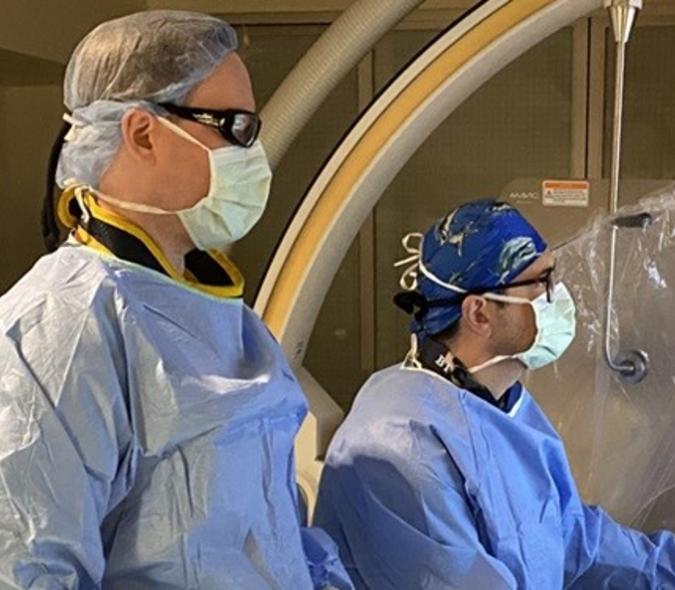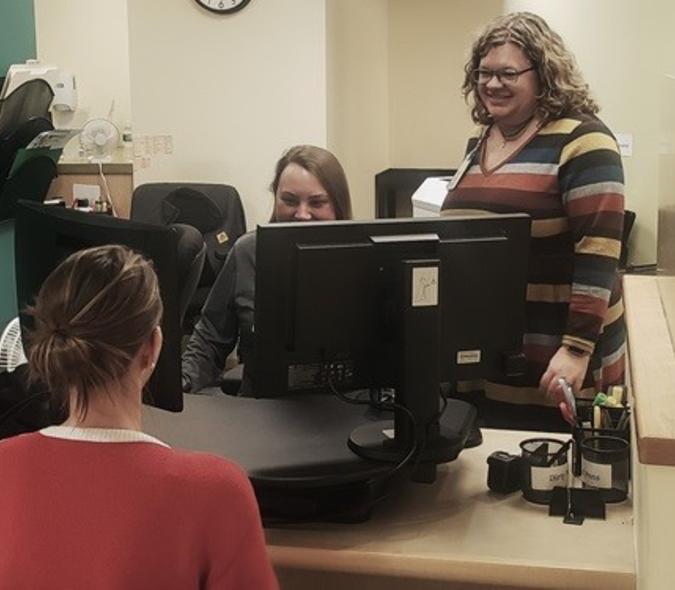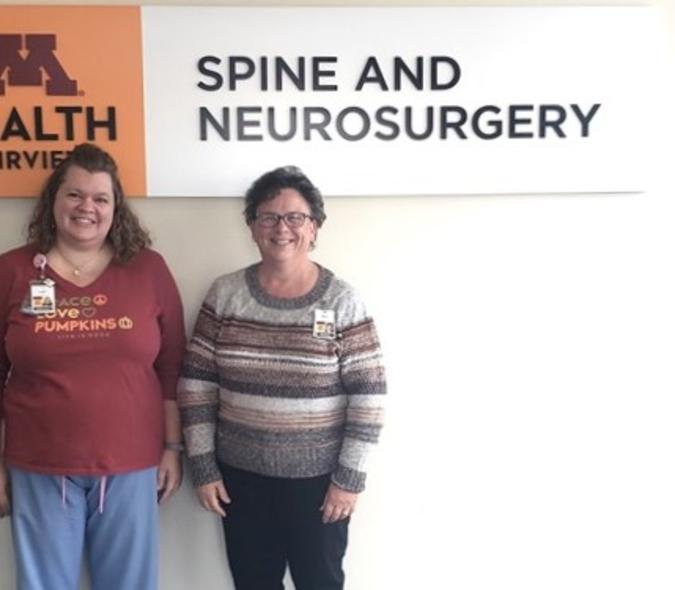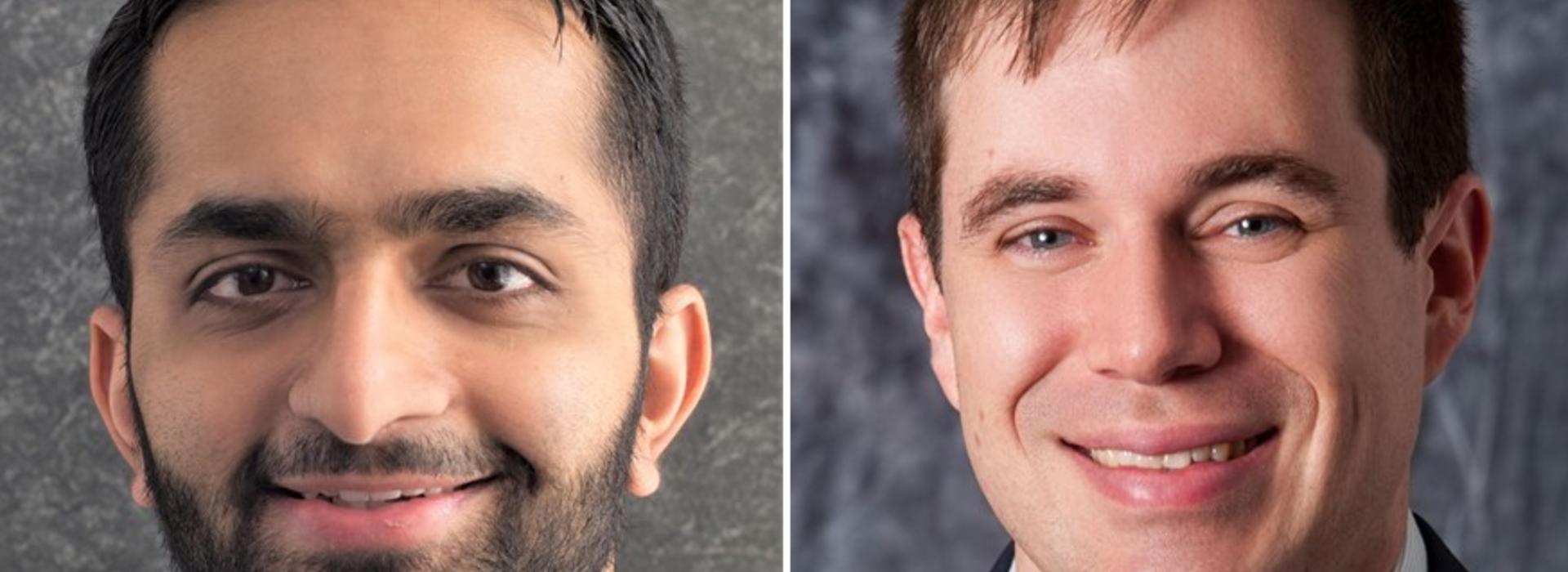
Our graduates feel well prepared to take on their next steps
On June 25, 2021, Adam Khan, MD, and Jack Leschke, MD, completed their journey as neurosurgery residents at the University of Minnesota. Their year as chief residents was a bit of a roller coaster, thanks to the COVID-19 pandemic, but they built a reputation for staying flexible and ensuring that the other residents continued to have meaningful learning experiences, despite the fluctuation in patient care needs.
“They got more involved over the past year,” said Michael C. Park, MD, PhD, Residency Program Director. “The leadership skills they developed as a result should stay with them for a long time.”
What’s next?
Dr. Khan is headed to a neuro-endovascular fellowship at the University of Michigan in Ann Arbor, where he attended medical school. Dr. Leschke returned home to Wisconsin and has joined a private neurosurgical practice in Green Bay.
As the recent graduates consider what helped prepare them for these next steps, they have differing perspectives. For Dr. Leschke, it was the gradually increasing autonomy in caring for his patients. “It comes down to the independence that you have…the responsibility for making decisions about your patients and how much the faculty rely on you to make those assessments and give them information,” he said. “You don’t really learn until you feel responsible for a large part of patient care.”
Dr. Khan felt that the variety of settings in which they learned played an important role. “We had a healthy mix of county hospital and University-based cases, conferences, and discussions that helped prepare me for the next year and beyond,” he said.
Vivid impressions
Learning to be a neurosurgeon can leave vivid impressions. “You experience a lot of memorable tragedies,” said Dr. Leschke. “There were many situations where you’re the go-to person for communicating about a really difficult situation. I felt it was a strength of mine to clearly communicate with family members in times of trouble.”
For Dr. Khan, the memories were a bit more earthy. “It seems like every week there are memorable patient interactions and stories, especially at the county hospital, where we were exposed to a microcosm of the human experience,” he said. “In my last month, I got pooped on, cursed at, and showered compliments on.”
Challenging residency
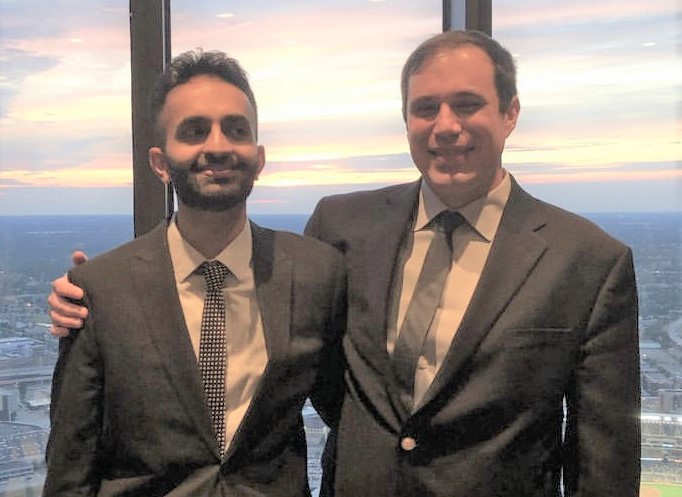
A neurosurgical residency is one of the most challenging, which is why it takes a total of seven years to complete. Dr. Leschke (pictured at left with Dr. Khan at the graduation ceremony) believes that one of the biggest hurdles is the process of growing into the autonomy required by the program. “When you’re learning how to do surgery, the best way to do it is to have the tools in your hands and with the appropriate oversight, you begin to understand its goals,” he said. “It’s humbling to struggle through some of the operations but it’s a good way to learn in the long run.”
For Dr. Khan, his challenges lay in every complication he had been witness to, performed, or discussed.
Despite the challenges, both neurosurgeons felt the years they spent in preparation for their next steps were worth it. “I’ve always viewed neurosurgery with a strong sense of purpose, even when it was extra hard,” said Dr. Leschke. “I feel fulfilled about what we’re doing to help patients, and how deeply appreciative our patients are. It’s hard to find another field where you derive such a sense of meaning.”
Opportunities for growth
When they think about what’s next for the residency program, they see opportunities for growth. “I keep hearing about the desire for more training sites and a larger resident complement,” said Dr. Khan.
“There is a trajectory for growth and for adding new and diverse faculty, especially in oncology and spine,” added Dr. Leschke. “It will be fun to watch the younger faculty members. They and our advanced practice folks will keep broadening the program’s footprint.”
For newer residents, both graduates offer some astute advice. “Keep your head down and focus on the positive things and people around you,” noted Dr. Leschke. Avoiding mesh shoes was something that Dr. Khan learned early on. “They let in too many bodily fluids,” he said. In addition, he recommends that new residents, “Maintain a case log and try to retain and record one small piece of information from each case. It can be long. For example, a step-by-step walkthrough of a new surgical exposure you did for the first time. Or short, such as a new way a scrub tech clips instruments to drapes. It may take an additional five minutes after every case but it's worth it and helps you retain all the information you have gleaned.”
As Drs. Khan and Leschke begin their next chapters, we congratulate them for this achievement and wish them the best!
